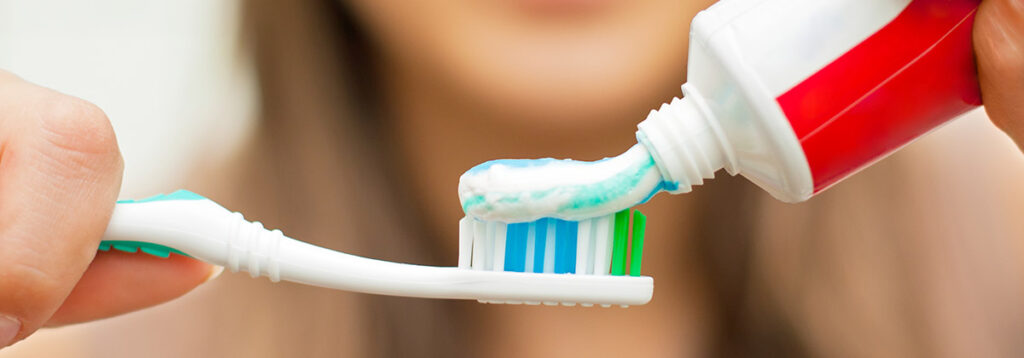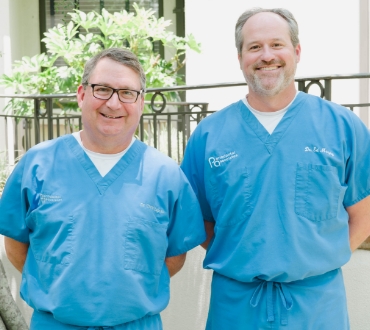
Why Good Dental Health is Important
Innumerable studies and research have concluded on the importance of starting children early in their lives with good dental hygiene and oral care. According to research, the most common chronic childhood disease in America is tooth decay, affecting 50 percent of first-graders and 80 percent of 17-year-olds. Early treatment prevents problems affecting a child’s health, well-being, self-image and overall achievement.
The National Institute of Dental & Craniofacial Research estimates that children will miss 52 million hours of school each year due to oral health problems and about 12.5 million days of restricted activity every year from dental symptoms. Because there is such a significant loss in their academic performance, the Surgeon General has made children’s oral health a priority.
Parents are responsible for ensuring their children practice good dental hygiene. Parents must introduce proper oral care early in a child’s life—as early as infancy. The American Dental Hygiene Association states that a good oral hygiene routine for children includes:
- Thoroughly cleaning your infant’s gums after each feeding with a water-soaked infant cloth. This stimulates the gum tissue and removes food.
- Gently brushing your baby’s erupted teeth with a small, soft-bristled toothbrush and using a pea-sized amount of fluoridated toothpaste.
- Teaching your child at age 2 or 3 about proper brushing techniques and later teaching them brushing and gentle flossing until 7 or 8 years old.
- Regular visits with their dentist to check for cavities in the primary teeth and for possible developmental problems.
- Encouraging your child to discuss any fears they may have about oral health visits, but not mentioning words like “pain” or “hurt,” since this may instill the possibility of pain in the child’s thought process.
- Determining if the water supply that serves your home is fluoridated; if not, discussing supplement options with your dentist or hygienist.
- Asking your hygienist or dentist about sealant applications to protect your child’s teeth-chewing surfaces and about bottle tooth decay, which occurs when teeth are frequently exposed to sugared liquids.
Brushing Regularly
Use a toothbrush with soft bristles and a small strip of fluoride toothpaste, unless the child is under the age of 3. If a child is younger than age 3, parents should clean their child’s teeth with water and a soft-bristled toothbrush. After age 3, parents should supervise brushing. Use no more than a pea-sized amount of toothpaste and make sure children do not swallow excess toothpaste.
When you brush your teeth, move the brush in small circular motions to reach food particles that may be under your gum line. Hold the toothbrush at an angle and brush slowly and carefully, covering all areas between teeth and the surface of each tooth. It will take you several minutes to thoroughly brush your teeth. Brush up on the lower teeth, down on the upper teeth and the outside, inside and chewing surface of all of your front and back teeth. Brush your tongue and the roof of your mouth before you rinse.
Brush your teeth four times daily to avoid the accumulation of food particles and plaque:
- In the morning after breakfast
- After lunch or right after school
- After dinner
- At bedtime
As soon as the bristles start to wear down or fray, replace your toothbrush with a new one. Do not swallow any toothpaste; rinse your mouth thoroughly with water after you finish brushing. It is important to carefully floss and brush daily for optimal oral hygiene.
Flossing Regularly
For areas between the teeth that a toothbrush can’t reach, dental floss is used to remove food particles and plaque. Dental floss is a thin thread of waxed nylon that is used to reach below the gum line and clean between teeth. It is very important to floss between your teeth every day.
Pull a small length of floss from the dispenser. Wrap the ends of the floss tightly around your middle fingers. Guide the floss between all teeth to the gum line, pulling out any food particles or plaque. Unwrap clean floss from around your fingers as you go, so that you have used the floss from beginning to end when you finish. Floss behind all of your back teeth.
Floss at night to make sure your teeth are squeaky clean before you go to bed. When you first begin flossing, your gums may bleed a little. If the bleeding does not go away after the first few times, let a staff member know at your next appointment.
Preventative Measures
Good oral hygiene is an important factor in achieving a healthier lifestyle, especially in adults. Eating a balanced diet, brushing and flossing daily and regular dental checkups are vital in preventing periodontal disease and maintaining your overall health.
Research has indicated possible links between the bacteria causing gum disease and systemic diseases like cardiovascular disease, respiratory disease, diabetes, osteoporosis and pre-term birth; therefore, visiting your dentist regularly is imperative. In addition to examining and cleaning your teeth, your dentist will screen you for oral cancer, which generally occurs in people ages 45 and older.
Having a healthy smile as you get older isn’t just for aesthetic reasons. It keeps you on the road to optimum oral health.










